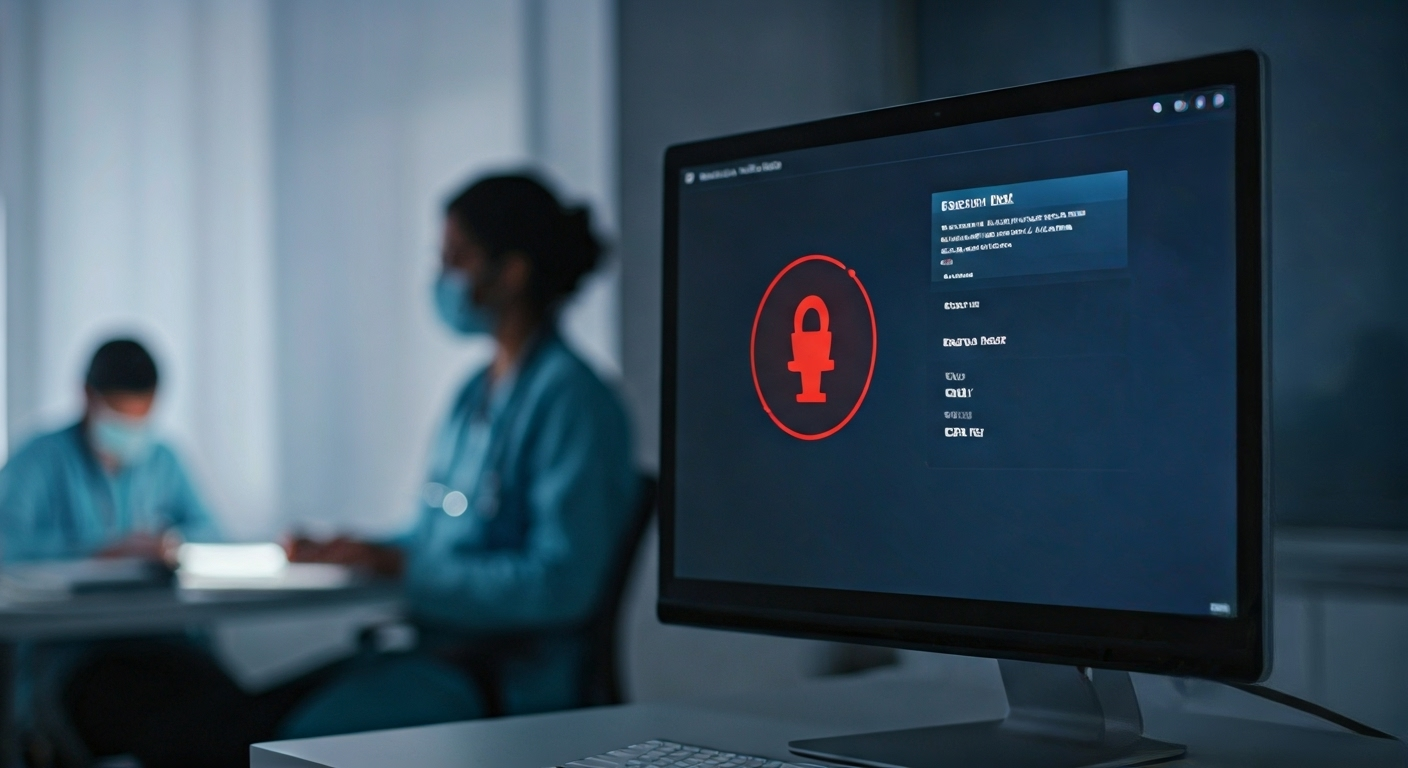The healthcare industry is now going through a big digital transformation. Hospital management software has become an important part in modern hospitals. It makes administrative workflows simple. It also helps improve patient outcomes and supports operational efficiency. With patient data management, artificial intelligence, and safe ways to share data, healthcare providers can meet the needs for quality care. This also helps with their regulatory compliance.
This blog talks about new trends in hospital management software. It shows the latest ways this software is changing. The blog also explains how these advances are making a big difference in the healthcare industry.
Overview of Hospital Management Software in the United States
Hospital management systems are changing the way healthcare facilities work in the United States. These systems bring all the data into one place and make it easy to handle key jobs with automation. They help with managing medical records, electronic medical records, appointment times, staff, and money matters. This makes everything run smoother for everyone.
In the United States, more healthcare facilities are turning to hospital management software. This helps them give better patient care and reach new levels of operational efficiency. With less manual work, medical staff have more time and resources. They can focus more on care delivery and making sure patient outcomes are good. This way, hospitals and other facilities use their staff and tools in the best way, so patients get the care they need.
Current Market Landscape and Growth Drivers
As new ideas in healthcare IT keep growing, more healthcare providers now use hospital management software. They do this because they want to make patient care better and spend less money when they run things. With hospital management software that uses artificial intelligence, predictive analytics, and data management, hospitals want to work better and do things faster.
One big reason for this change is the need to be better at building software that can grow with the hospital. It must also keep up with regulatory compliance, such as HIPAA rules. A lot of healthcare facilities now choose cloud options. This is because they have lower upfront costs and you can reach them easily. Hospitals often work with a software development company to ensure their systems are scalable and compliant. This helps when the hospital wants to save money and stick to a budget.
There is now more money being put into new healthcare software. This software helps doctors and staff with patient care and resource management. A report by PWC says that 40% of healthcare groups are now spending money on AI tools for analytics. This shows technology is changing how administrative workflows work. It helps give patients a better experience and also makes resource management better for everyone.
Regulatory Environment and Compliance Requirements
Regulatory compliance is very important when it comes to hospital management software development. The healthcare industry has to follow several standards like HIPAA, HITECH, and GDPR. These rules are there to keep patient data safe and private. Hospital management software uses things like encryption and secure access. This helps make sure that all the rules are followed in the right way. It keeps patient data safe and shows that the healthcare industry takes these laws seriously.
HIPAA has clear rules about ways to use electronic medical records and keep patient information safe. Developers help the healthcare systems, all kinds of medical devices, and different platforms work with each other. They do this without letting security go down. This means that every part of the data is safe when it goes from one system to another.
By following these rules, systems get better and become safer. This is important when handling patient records. Healthcare IT teams make software that meets OWASP, ISO, and IEC standards. This helps give the healthcare industry the security and privacy it needs. Because of this, safe care delivery happens in busy hospitals.
Key Challenges Facing Hospital Management Software Today

There is another problem in hospital management. Many hospitals still use old systems. These old systems cannot connect easily with new hospital management software. The systems often do not work well together. This makes it hard for people to get care quickly and easily. It is important to solve these hospital management issues. If healthcare IT is to get better, we need to fix these problems to help care delivery be smooth.
Data Security and Patient Privacy Concerns
Keeping patient data safe is a top concern in hospital management. When you build hospital management software, you need to use strong security steps. There are now many cyber threats, so more focus is on strong ways to protect the data. Some ways to keep it safe are good data encryption, multi-factor steps to check who you are, and secure access to the system. These help keep patient info safe for everyone who works in hospital management.
When there is a data breach, it can put patient privacy at risk. It can also bring legal trouble because of HIPAA compliance rules. So, many software solutions use data encryption now. This helps keep medical records safe when they are sent or stored. It is important for keeping trust with people.
Today’s hospital management software needs to link different systems. This helps boost care coordination, but it must also keep patient data safe. The big thing is to make hospital management software give more features, yet not break the promise of privacy. Teams in healthcare IT work on ways to keep out cyberattacks. They also look for steps that raise operational efficiency.
Integration with Legacy Systems
One big problem for people who build healthcare software is to make sure new hospital management software works well with old systems. A lot of old systems do not share data fast or easy. These legacy systems often do not have good data management. Because of this, fast and smooth data exchange can be hard.
Healthcare providers need solutions that can grow with their needs and work with old or legacy software. They do not want anything that will make their daily work harder. For healthcare IT teams, joining different kinds of data setups and dealing with many file types is still a big job.
To fix this, developers make use of custom APIs. These help to boost compatibility in healthcare software. They also use some tools in the middle that handle data mapping on their own. This makes everything move forward in an easier way. In the future, changes in healthcare software will turn old systems into pieces of bigger and better frameworks. This will help care delivery to be steady and well-connected in hospitals and clinics.
Emerging Technologies Shaping Hospital Management Software

These days, medical devices using IoT help doctors and nurses watch patients even when they are not close by. This makes it easier for them to step in when they need to. All these new ways help with data management and make work flow better in hospitals. They also help hospitals get better results for the people they care for.
This new group of digital tools is letting healthcare software do more than before. These tools help hospital management and patient care improve. With them, we will soon see new and creative ideas in the field.
Artificial Intelligence and Machine Learning Applications
Artificial intelligence and machine learning are making big changes in hospital management these days. With predictive analytics, healthcare providers can now look ahead. They can see changes in patient health before they happen. This also helps spot problems in how hospitals run. So, the use of artificial intelligence and machine learning gives healthcare providers new tools to keep things running well in hospital management.
AI tools help doctors and staff with making better choices. The tools look at a lot of medical records and give advice that can help. For example, the tools can suggest treatment plans. They check what medicines a patient is on now and look at their health history too. This makes patient outcomes better. It also makes care delivery feel more personal.
Machine learning makes it easier to handle administrative workflows in hospitals. These systems can do simple jobs, like set up patient visits, without help. They are good at finding mistakes when it comes to insurance claims. When you use these tools together, healthcare institutions can keep up with new changes and help all people work well.
Internet of Things (IoT) for Real-Time Monitoring
Putting the Internet of Things (IoT) into hospital management software can really help with how hospitals keep track of patients right away. Devices with sensors can get patient data fast and send it to medical professionals or healthcare providers. This helps them make choices that are good for the patient and do it quickly. They can check on people even when they are not in the hospital, which is called remote patient monitoring. The patient data lets them change treatment plans as needed and stop problems before they get worse. This way, hospital management is smoother and patients can feel safer.
IoT is also good for resource management in hospitals. It helps you track how things like equipment and supplies are used. You can also keep an eye on inventory with it. This helps a hospital raise its operational efficiency over time. When you use all these tools together, healthcare institutions can give better quality care. It will help improve patient outcomes. That is why hospital management software is now important for hospital management. It is needed to get the best results.
Role of Cloud Computing in Hospital Software Development
Cloud computing is now a key part of software development for hospital management. This hospital management software makes it easy for healthcare facilities to grow or get smaller based on what they need. So, they can work better and do not have to spend a lot at the start.
With cloud-based hospital management software, healthcare providers can get patient data and medical records in real time on any device. This lets staff work with each other better and helps them give better care to patients. Hospitals can keep electronic medical records safe and let their teams find important patient data from anywhere, at any time. Cloud computing also works well with other healthcare systems, so everything connects and runs smoothly. This new way is helping hospital management be better and making healthcare more connected for everyone.
Benefits of Cloud-Based Solutions
Cloud-based solutions offer many benefits when it comes to software development for hospitals. When people use the cloud for hospital management software, it helps them in many ways. It can make the work easier and faster. It is good for teams who want to be more flexible with their hospital management tasks. A cloud-based system makes it simple to get all the data you need from anywhere at any time. This is great for people who work in or manage hospitals. Using the cloud in hospital management software saves time, can lower costs, and lets teams work better together.
- Lower upfront costs: Hospitals do not have to spend a lot of money at the start. This lets hospitals of any size get into cloud services in an easier way.
- Enhanced scalability: The system can grow as there is more data. So, hospitals can care for more people when there are more patients.
- Remote accessibility: Medical professionals can look at patient records from any place and at any time. The records are safe, and this helps them act fast if there is a need.
- Data visibility: When hospitals use the cloud, all teams get the latest facts right away. This keeps patient information current and simple to see.
Cloud computing is now a big part of how hospitals work because of these benefits. It helps make hospital management better and helps doctors and nurses do their jobs well. With these tools, medical professionals can deal with many problems in a good way. This change makes it easier for them to help people and keep things running smoothly.
Addressing Cloud Security and Compliance
Cloud security and compliance are very important for healthcare organizations that use digital tools. They have to use strong data encryption to keep medical data safe. Many hospitals work with secure healthcare hosting in the US or similar trusted partners to keep data environments aligned with industry rules. Secure access to patient records is important to protect patient information. Healthcare providers also need to be sure that their cloud systems meet regulatory compliance, like HIPAA rules. This is needed to keep the privacy of patient records safe.
When there are changes in healthcare software development, every organization has to keep patient data safe. At the same time, they want better operational efficiency too. A good way to handle software development lets them use cloud computing the right way. This can help them work well, keep patient care at the center, and still make sure patient data is protected.
Enhanced Patient Engagement through Digital Platforms
Digital platforms are changing the way healthcare providers stay in touch with people. These tools help build strong connections. They can make the patient experience better in many ways. People now use mobile apps and patient portals. This makes it easy to see medical records and treatment plans. They can also talk right away with medical professionals. With the growing demand for accessible digital healthcare, many organizations invest in portal development to offer patients secure, personalized access to health information and communication tools.
With these simple ways to find and share information, people feel more in control of their own care. They feel involved in what happens to them. Healthcare providers can now work together in a better way. This helps people get the right care from medical professionals and the information they need when they need it.
Because of these changes, patient outcomes get better. Healthcare organizations can now give more care that fits a person’s specific needs. All this is part of the bigger digital transformation that is happening in the healthcare industry.
Patient Portals and Mobile Applications
The use of patient portals and mobile apps is changing the way healthcare organizations connect with people. These tools let users see their patient data, book visits, and talk to medical professionals. All this makes care coordination better. It also gives a good patient experience. When healthcare providers use data analytics, they can create treatment plans that fit people’s needs. Secure access and data encryption keep patient data safe at all times. These features meet rules like HIPAA, so people feel sure about how their data is handled. When all of these tools work well together, healthcare organizations see better patient outcomes. It also helps with operational efficiency, so things get done quicker for everyone.
Tailoring User Interfaces for Different Stakeholders
Designing user interfaces that fit different people in healthcare is very important to help things go smoothly. Medical professionals, administrative staff, and healthcare providers all have their own needs. Because of this, they need custom user interfaces that can make their work easier. The use of data analytics shows how people work with the software and what features they like best. When you know this, software solutions can add things to help care coordination and help give patients a better experience. Personalization also helps with regulatory compliance. This can also lead to better patient outcomes. That is the reason custom healthcare software matters so much in healthcare software development. Custom healthcare software can help raise operational efficiency and give all people better patient outcomes.
Modular and Scalable Architecture
Flexibility in design is very important in modern healthcare software development. A modular and scalable system lets healthcare organizations change their hospital management tools when their needs shift. By adding custom parts, places like hospitals can get better operational efficiency and keep up with regulatory compliance and data integrity. This way, healthcare software development makes it easy to add things like data analytics or telemedicine. In the end, a system built like this helps give good patient care, makes administrative workflows smoother, and gives everyone a better patient experience.
Hospital management software is changing the way the healthcare industry works and making a real difference in patient care. These digital tools help with patient engagement and give medical professionals more control in the hospital. They make it easier to manage administrative workflows, which lets hospitals work faster and better.
Now, with things like predictive analytics and software solutions built for special needs, hospitals can connect their systems in a better way. This leads to better patient outcomes, stronger security, and better rule-following. When hospitals use these hospital management tools, the goal is to offer more quality care and make sure every patient has a better patient experience in every visit.


